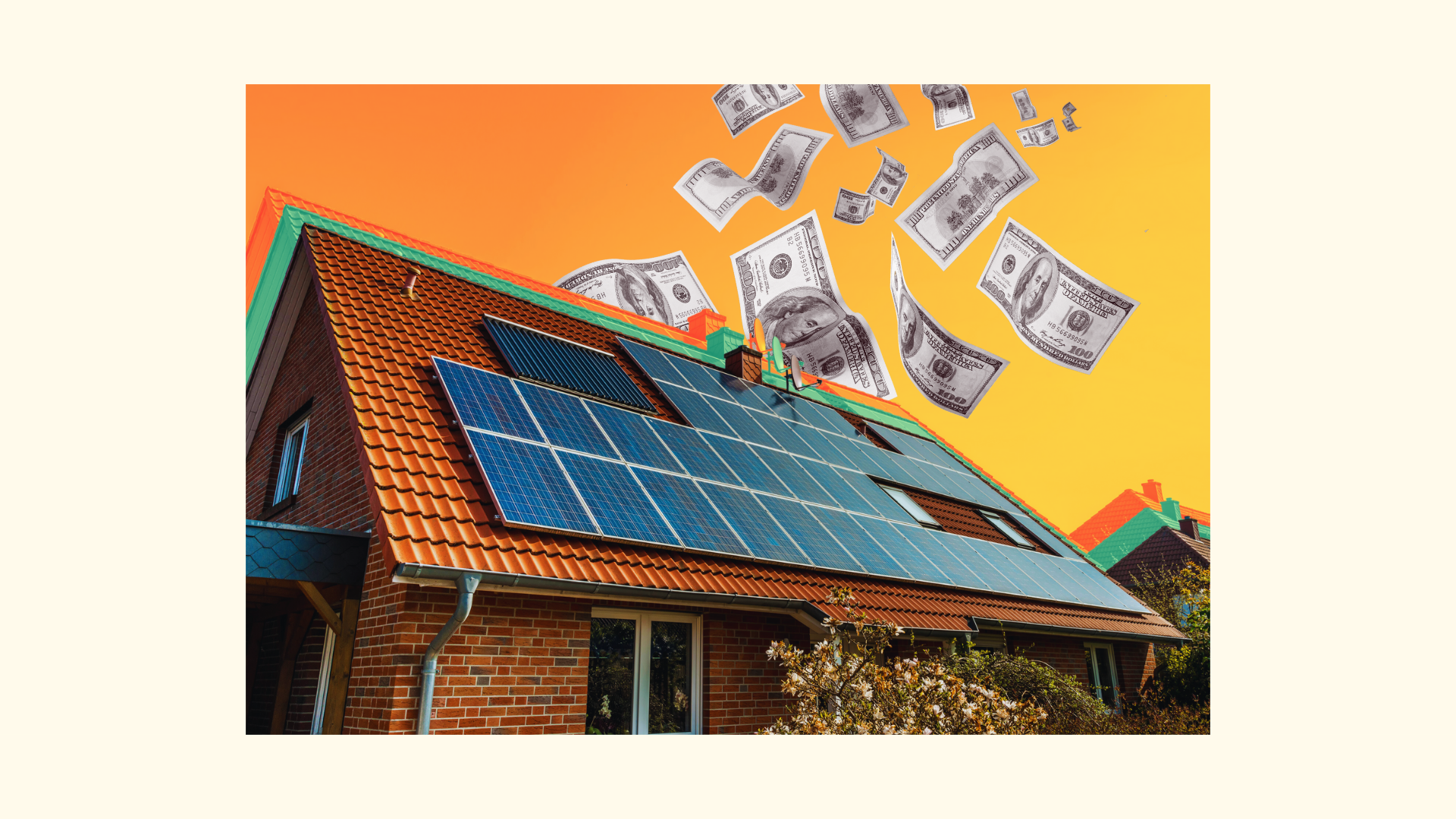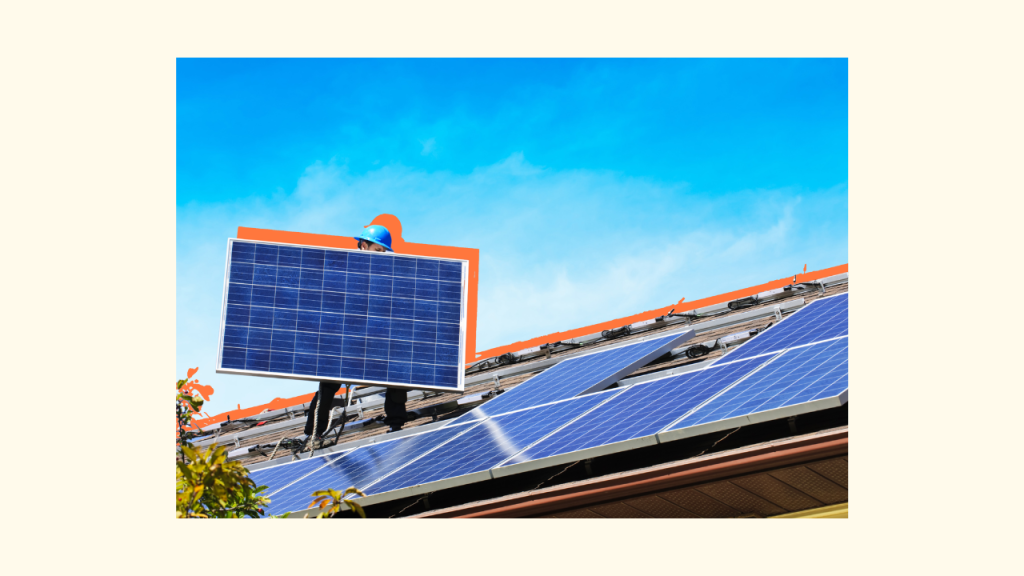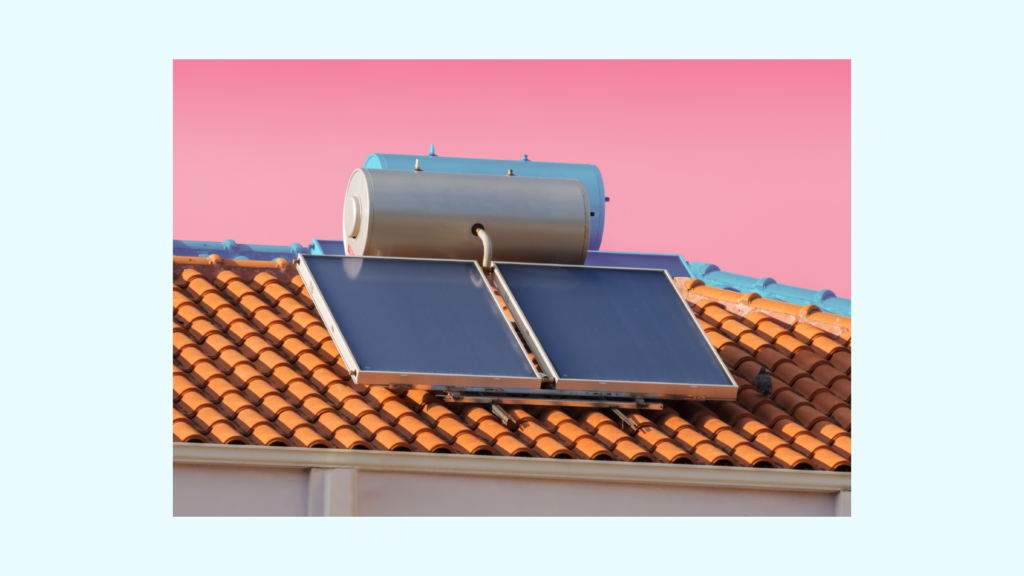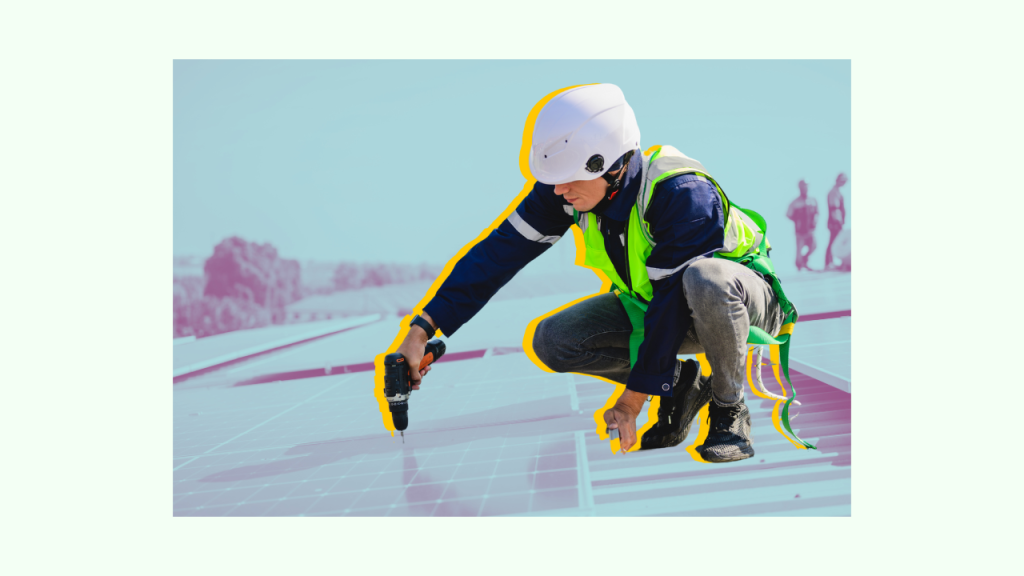Solar energy is leading the way towards a greener future. With the government setting targets and abundant sunlight to harness, Singapore is on track to be a renewable energy leader.
This article explores solar energy potential in Singapore, including its goals, current projects, and the financial incentives available for you to enjoy!
Table Of Contents
Why is Solar Energy Suitable For Harvesting in Singapore
Solar energy emerges as the most promising renewable energy source in Singapore, thanks to the nation’s abundant sunlight. With an average annual solar irradiance of 1,580 kWh/m2/year, Singapore receives about 50% more solar radiation compared to countries in temperate climates. This natural advantage positions solar energy as a reliable and efficient solution to meet the nation’s energy needs while reducing carbon emissions.
Government Targets and Commitments
In Singapore’s roadmap towards sustainability, one of the key targets is to ramp up the deployment of solar energy significantly. By 2025, the aim is to reach a capacity of at least 1.5 gigawatt-peak (GWp), which is projected to meet around 2% of the nation’s electricity demand. Looking further ahead to 2030, Singapore aims to achieve a capacity of 2 gigawatt-peak (GWp), which could power more than 350,000 households annually, as outlined in the SG Green Plan. These targets underscore Singapore’s commitment to harnessing renewable energy sources for a greener, more sustainable future.
Tip!
Ready to contribute to sustainability efforts by harnessing solar energy? Get an estimate of your property’s solar potential and discover potential savings.
Solar Energy Adoption Across Singapore
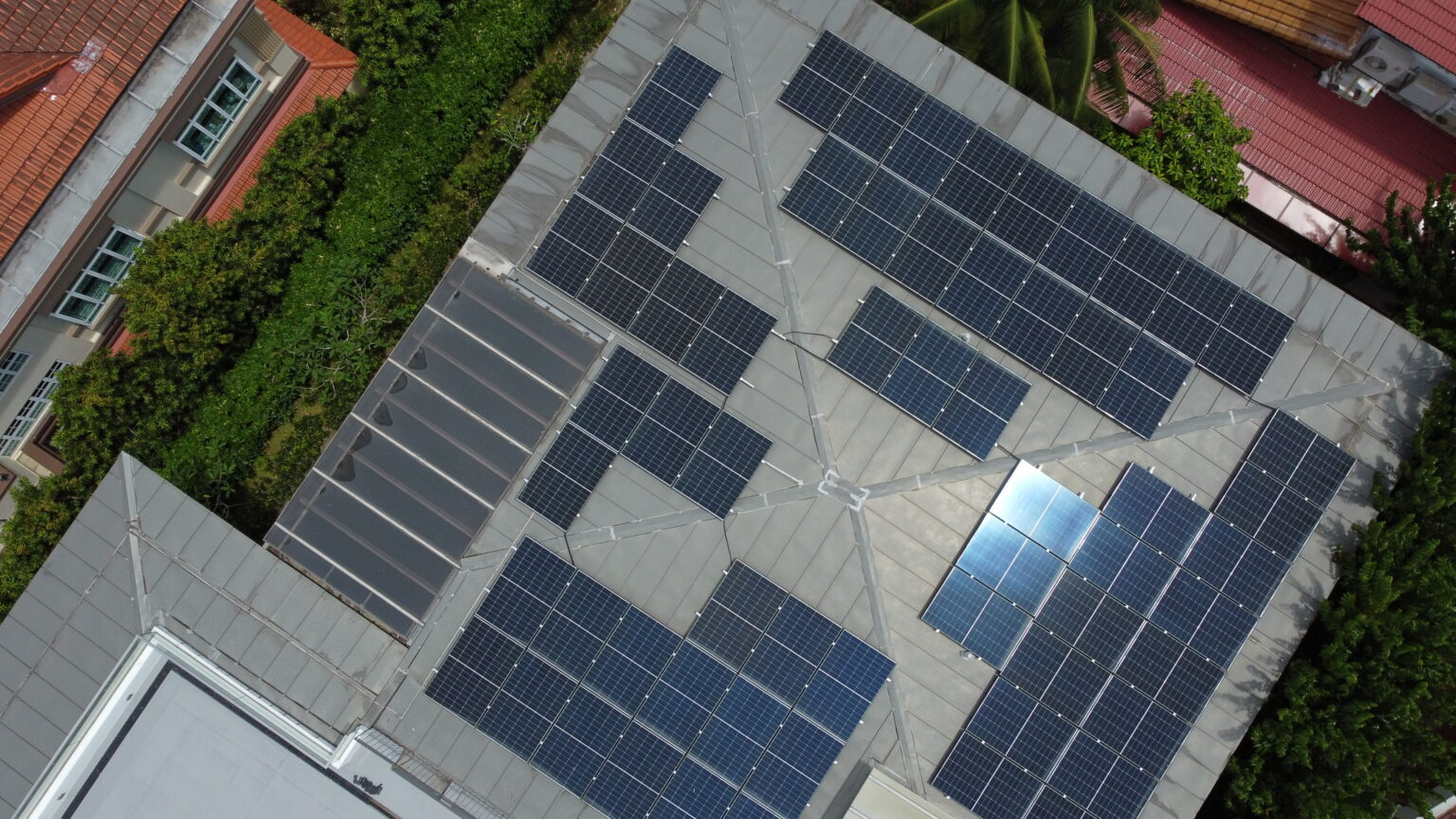
Solar energy is catching on fast in Singapore as people and businesses see how it can change the way we get our electricity. The benefits of solar panels extend beyond reducing carbon emissions; they also offer significant long-term cost savings on energy bills while enhancing energy independence. From solar panels for homes to commercial installations, solar energy adoption is becoming common, driving the nation towards a greener and more sustainable future.
HDB Rooftop Solar Panels
One notable initiative driving solar energy adoption in Singapore is SolarNova, a government-led initiative aimed at installing solar systems on Housing and Development Board (HDB) roofs and public sector buildings. This initiative aligns harmoniously with broader sustainability objectives, including the HDB Green Town Plan, which envisions the installation of solar panels on HDB buildings. SolarNova underscores Singapore’s commitment to integrating renewable energy solutions into its urban landscape, paving the way for a more sustainable future.
Tip!
Did you know that landed homeowners in Singapore can also install solar in their homes to contribute towards Singapore’s green goals, while saving electricity bills? On average, you can expect about $0.15/kWh if you’re powered on solar! Explore your options when installing a solar pv system.
Solar Panels on Reservoirs and Offshore Lands
Renewable energy companies in Singapore are also making strides in harnessing solar energy beyond traditional rooftop installations. The Sembcorp Tengeh Floating Solar Farm stands as one of the world’s largest inland floating solar PV systems, boasting 122,000 solar panels spread across an area equivalent to about 45 football fields with a capacity of 60 megawatt-peak (MWp).
Additionally, offshore spaces are being utilised for solar energy generation — projects like Sunseap EDPR’s 5 MWp solar farm at Woodlands, is projected to produce an estimated 6,022,500 kilowatt-hours (kWh) of energy annually.
Solar Panels on Vacant Land
The SolarLand programme, led by JTC, involves the installation of modular solar PV systems on temporary vacant land. Currently implemented on Jurong Island and at Changi Business Park, these solar PV systems represent an innovative approach to leveraging unused spaces for renewable energy generation, contributing to Singapore’s sustainable development goals.
Commercial Buildings
Building Integrated Solar Photovoltaic (BIPV) systems offer a seamless integration of solar PV technology into the design of commercial buildings. Beyond their sustainable benefits, BIPV systems provide visually appealing solutions for clean energy generation, showcasing Singapore’s commitment to sustainable urban development. Furthermore, commercial buildings can explore the adoption of solar panels through power purchase agreements, providing a flexible and cost-effective approach to renewable energy procurement.
Financial Incentives For Solar Energy Adoption in Singapore
To encourage the adoption of solar energy among homeowners and businesses in Singapore, the government offers various financial incentives. These include grants, rebates, and subsidies to offset the initial prices of installing solar panels.
Net Metering Scheme
Solar net metering in Singapore is a billing mechanism that credits owners of solar panel systems for the excess energy they generate. While Singapore doesn’t offer a full net metering scheme, consumers can choose to sell surplus solar electricity back to the grid by registering either with SP Services (SPS) or the Energy Market Company (EMC).
There are currently three main schemes: Simplified Credit Treatment Scheme (SCT), Enhanced Central Intermediary Scheme (ECIS) and Market Participant (MP) with the EMC.
Simplified Credit Treatment (SCT) Scheme
- Only applicable to residential solar panel installations
- Only applicable to non-contestable consumers (buying from SP Services)
- Applicable for solar panel systems with less than 1 MWac capacity
SCT compensates you for any surplus energy your solar panels generate at the prevailing tariff rates, deducting grid charges. Grid charges, also known as network costs, usually make up about 20-25% of your electricity tariff. This implies that SPS will reimburse you with approximately 75-80% of the electricity price for the energy you’ve generated.
For instance, in Q3 2022, with the SP Group tariff at $0.3017 per kWh (before GST), solar homeowners under SP Group would receive $0.2423 per kWh for any excess solar energy injected into the grid.
For homeowners, solar installers can handle the registration for the SCT scheme on their behalf.
Enhanced Central Intermediary Scheme (ECIS)
- Applicable to both residential and commercial solar installations
- Applicable to contestable consumers (buying electricity from a retailer of your choice)
- Applicable for solar panel systems with less than 10 MWac capacity
If you’re a consumer with a solar panel system that has a solar capacity of less than 10 MWac — which should be the vast majority of solar projects — you’ll qualify for the Enhanced Central Intermediary Scheme (ECIS).
Under ECIS, solar energy surplus will be compensated based on half-hourly wholesale energy prices. It’s important to note that wholesale electricity prices can fluctuate based on demand and supply. In the first half of 2022, half-hourly prices ranged from a high of $4.2493/kWh to a low of $0.0876/kWh!
Typically, ECIS is slightly less profitable for long-term excess solar energy sales than the SCT scheme. If your rooftop solar generates much surplus energy, we recommend a switch to SPS for better grid tariff rates.
Market Participant (MP)
- Only applicable to commercial solar panel installations
- Applicable for solar panel systems with more than 10 MWac capacity
Companies with a solar capacity of 1 MWac or higher can opt to directly register with EMC as a Market Participant for electricity sales. In this setup, eligible companies receive payment based on nodal energy prices, determined by energy demand and supply from injection nodes across Singapore.
It’s essential to note that becoming a Market Participant involves substantial upfront costs, primarily suitable for energy companies with multiple assets. These fees comprise a non-refundable one-time registration fee of $5,400 and an annual fee of $10,800.
Renewable Energy Certificates (RECs)
In Singapore, solar owners can also benefit from the sale of Renewable Energy Certificates (RECs), providing an additional financial incentive. RECs are tradable assets representing green electricity generated from renewable sources, allowing solar energy producers in Singapore to derive value from their solar panels. Each REC corresponds to 1MWh of electricity produced by their solar panels.
Corporations without their own solar installations can use RECs to offset their carbon emissions and access sustainable energy sources. By purchasing RECs, these companies gain certified access to solar energy generated by solar producers, facilitating a win-win arrangement. It aids companies in achieving their carbon reduction goals while providing financial support to solar energy producers for maintaining their systems.
Tip!
Learn more with our comprehensive guide on RECs.
Green Mark Incentive Scheme For Existing Buildings (GMIS-EB 2.0)
- Available for commercial to residential building types which meet the criteria
- Available till the available funds have been fully committed or by 31 March 2027 (whichever is earlier)
In March 2021, Singapore unveiled the Singapore Green Building Masterplan (SGBMP) to enhance building sustainability and energy efficiency. As part of this, the Building and Construction Authority (BCA) introduced GMIS-EB 2.0 on June 30, 2022. GMIS-EB 2.0 aims to improve the energy performance of existing buildings and accelerate the transformation of 80% of Singapore’s buildings into green, energy-efficient structures by 2030.
The GMIS-EB 2.0 scheme offers substantial financial incentives of up to $1.2 million or 50% of qualifying costs, prioritising buildings meeting high energy performance standards. GMIS-EB 2.0 encourages energy-efficient retrofits and is open to buildings with a minimum Gross Floor Area (GFA) of 5,000 square metres. Eligible building types include commercial, industrial, and residential, with specific criteria for light industrial buildings based on Singapore Standard Industrial Classification (SSIC) codes. This initiative aligns with Singapore’s commitment to sustainability and energy efficiency, contributing to a greener built environment.
Enjoy Solar Energy in Singapore with GetSolar
Singapore offers a range of financial incentives to encourage solar adoption and enhance energy efficiency in its buildings. We urge homeowners to explore the possibilities of solar panel systems and leverage these financial incentives not only to reduce energy costs but also to contribute to a more sustainable future. Embracing solar energy is not just an investment in your property; it’s an investment in a cleaner, greener Singapore.
At GetSolar, we have an innovative approach for homeowners to adopt solar. With our rent-to-own solar programme, there are 0 upfront costs and instant savings. Join us on this sustainable journey to lower your energy costs and help build a greener future for Singapore!

